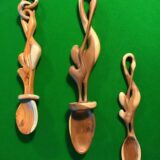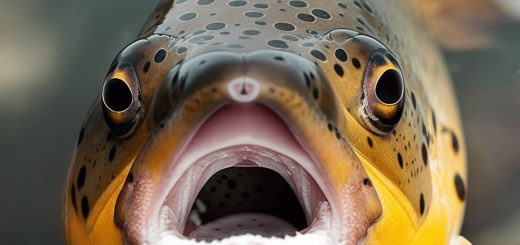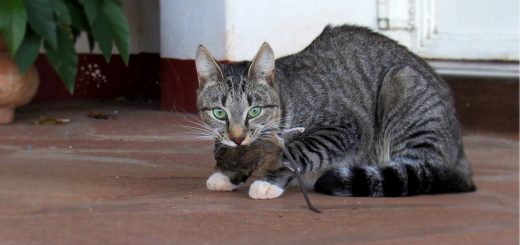To Be Left Alone: Living With Autism – 12

DESTINATION MILFORD HAVEN
Once I was diagnosed, I set about trying to improve my life, starting with moving indoors. It was lovely living in the middle of the wood but I was getting to an age where my bones and joints were suffering in the cold and damp, and even before I started the diagnostic process I had decided to try to sort something out for when I turned 50, and then revised this down to 47 after the next winter.
Also, no longer having a vehicle and living two miles (with many hills) from the nearest shops was taking a toll as I had to cycle to get my shopping and could only get what I could carry on my back.

I applied for PIP and for the tiny amount of pension I had earned working for seven years in one place. It took months for it all to come through but in October 2015 I was able to move into a rented flat.
It was a lovely flat and I was very lucky to be able to move in as they normally only allow ‘professionals’ to live there. Obviously I did not disclose at that stage that I was in fact homeless and gave them the address of a friend that I had been using for post, pretending I had been lodging there for 10 years! (I have come clean now and the letting agent knows the whole story.)
Whilst it was very nice and an extremely high-quality flat, it was on the bottom floor of the block and I was aware that there must be an outstanding view of the sea from higher up, and I asked that if a flat higher up became available, I could have first refusal.
How monstrously lucky I was then, because one of the two penthouse flats became available for only a tiny bit more money. I signed up and paid the deposit without even viewing it, and it was the best thing I have ever done. It is a gorgeous flat with the most amazing view. I wake up every day and am so grateful and feel so lucky to live somewhere so lovely. I cannot imagine living anywhere else, despite the fact that is in a town, which surprises everyone who knows me, given my previous bucolic existence. My answer to this is that when you have had to cycle four miles up hills to get shopping, being able to pop out for milk is the greatest luxury of all.

Autism Awareness to (Autism Acceptance)
I became involved with a charity that wanted me to write and read out a very short account of my life as part of an awareness course about learning disabilities but which had an hour of autism awareness on the end.
I was terrified, mortified and horrified but with help I managed to write a short piece (probably only about two minutes long) and read it out to some local police officers and social workers as part of their training. I was so scared and almost in tears at my sad story and had to keep reassuring my listeners that there was a happy ending!

We delivered this a few times and the overwhelming feedback was that these people wanted to know more about autism so, it was decided that a full-day Autism Awareness course would be written and I and a couple of others would tell our stories as part of that.
Many months went by and it gradually became apparent that nobody who wasn’t autistic actually knew anything about autism without a learning disability, beyond the usual stereotypes, and were absolutely at a loss as to how to go about writing a course about it.
During this time I had been asked to speak at other functions and had written a much longer and more detailed version of my story which I had delivered a few times. I was gaining in confidence that people actually wanted to hear what I had to say, which was entirely a novelty to me.

I decided that I would have a go at writing the course. I started researching as much as possible, talking to and listening to other autistic people and finding out what exactly it is that we want to tell the world.
I quickly discovered that ‘awareness’ on its own was of absolutely no use without acceptance and understanding. I then deviated from the basic brief of ‘autism awareness course’ to a course that would help people understand why we do the things we do and why we think the way we think.
I had to pick apart stereotypical views of autism propagated by so-called experts and explain the true position. The end result was a course that the autistic people I have shown it to heartily endorse but I have been assured that other people find offensive.
I do not see a way that I can explain what it is like to be autistic without also giving ideas as to how to help us so a stalemate has been reached.
The next project for Emma is bringing to life an Autism Charter: a list of basic human rights that autistic people are continually denied. Her idea is that services and organisations will sign up to say that they agree that autistic people are entitled to these rights, and there will be random checks to see if the Charter is being adhered to.
Emma has already collated many of these rights and will be consulting with as many more autistic people as possible to see what they have to say.
“I have asked for permission and am hoping to enter into negotiations for use of a copyrighted character as a mascot and will then be seeking some way of bringing the existence of the Charter out into the public domain,” she says – and she sincerely hopes that this project will improve the lives of autistic people and increase understanding among the general public.
Emma says of herself: “As a pretend-normal person, I was an abject failure, but I am really hoping that as an actually autistic person I will be able to do something useful and make a difference to others.”
Please note that since posting this series from Emma Wishart she has been published in an anthology from Editor and writer Mair Elliot, From Hurt To Hope- Stories of Mental Health, Mental Illness and Being Autistic. @Jessica Kingsley Publisher 2021





















Dear Emma, I have known of you through your continuing friendship, over many years with my son Mike and his wife Jenny. I have been moved to tears at times reading your account of your life so far, and can only hope that all your heartache , and despair, have not be in vain, I feel ashamed as a member of the Human race that we can be so ignorant of other people’s needs, and through that ignorance perpetrate and add to your pain and desolation.
Best of luck with your book, and your quest to enlighten us all. ?
Thank you for your lovely comment Pat. You have made a very important point about the irony that autistic people are said, by some experts, to have no empathy. Dr Damian Milton refers to it as The Double Empathy Problem – people are far more likely to treat us with a shocking lack of empathy and project that onto us. xx